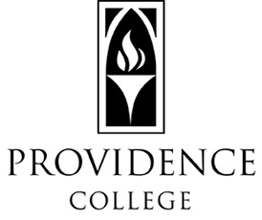Biographical note
Robert Emmet Quinn was born on April 2, 1894 in Phenix, R.I., in what is now West Warwick, R. I., to Charles Quinn and Mary Ann (McCabe) Quinn. He graduated from Brown University in 1915 and completed his law degree from Harvard Law School in 1918.
During World War I, Quinn served in France with the American Diplomatic Service and upon returning to the United States joined the law firm of his uncle, Col. Patrick Henry Quinn. It was through his uncle, who was the state's Democratic national committeeman, that the younger Quinn became interested in Rhode Island politics.
After serving two terms in the R. I. legislature in the 1920s, Quinn was elected as Lieutenant Governor from 1932 to 1937. Because returns from three Republican districts appeared to be fraudulent in the senatorial election of 1934, on January 1, 1935, Lt. Gov. Quinn opened the State Senate by appointing a committee to recount ballots from the previous November election. The recount led to a majority of Democrats being elected instead of Republicans. Once gaining control of the Senate, the Democrats reorganized the state government and took over many of the former Republican power bases. This action became known as the "Bloodless Revolution of 1935."
When incumbent Governor Francis Green chose to run for a seat in the United States Senate, Quinn was nominated for the governorship of Rhode Island in which he defeated republican Charles P. Sisson by a popular vote of 160,776 to 137,369. He held this office from January 5, 1937 to January 3, 1939 and proved to be one of the most active governor's in the state's history. During his administration, Quinn advocated a merit system for state workers, a personal income tax, and exemption for the poor from real estate taxes.
In addition, during his administration, legal horseracing was just opening up in the state, and Quinn was determined that it be kept honest. Rumors of racketeers controlling the racetrack at the newly opened Narragansett Park prompted Quinn to initiate legal measures against the track and its owner, Walter O'Hara. Known as the "Racetrack War", after lengthy legal and politcial fighting, Governor Quinn won the fight to keep the industry clean amidst national headlines, which garnered him the nickname "Fighting Bob."
Quinn was unsuccessful in his bid for re-election against republican William H. Vanderbilt and returned to his private law practice. In 1941 he was appointed to a Superior Court judgeship by Gov. Howard J. McGrath.
During the Second World War, he reentered the military as a Lt. Commander in the Navy’s legal branch and served for four years, rising to the rank of Captain. During his military career Quinn specialized in developing a way to process court martial trials. He returned to the bench after the end of the war and in 1951, Quinn was named Chief Judge of a new three-member United States Court of Military Appeals by President Truman, a position from which he retired in 1975.
He was a past president of the American Bar Association; trustee of Kent County Hospital, Warwick, Rhode Island; and a member of the Turks Head, Brown, Harvard and Wannamoisett clubs. "Fighting Bob" Quinn, after serving in all 3 branches of Rhode Island government, capped his career with a 25 year tenure as Chief Judge of the United States Court of Military Appeals. Judge Quinn died on May 19, 1975 and was buried in the Quinn Family Cemetery, West Warwick, Rhode Island.
Chronology
| Date | Event | |
|---|---|---|
| April 2, 1894 | Born in Phenix, Rhode Island | |
| 1915 | Graduates Brown University | |
| 1918 | Graduates Harvard Law School | |
| 1917-1919 | Serves as a member of the U.S. Diplomatic Intelligence Service in England and France | |
| 1920 | Joins the law firm of his uncle, Col. Patrick Henry Quinn | |
| 1923 | Marries to Mary Carter - 5 children | |
| 1923-1925 | Elected to the Rhode Island Senate | |
| 1929-1933 | Elected to the Rhode Island Senate | |
| 1932-1936 | Elected as Lt. Governor of Rhode Island | |
| 1937-1939 | Elected as Governor of Rhode Island | |
| 1939-1941 | Practices private law | |
| 1941 | Appointed judge for the Rhode Island Superior Court | |
| 1942-1945 | Serves as a legal officer at the rank of Lt. Commander for the First Naval District | |
| 1942 | Promoted to Captain, U. S. Navy | |
| 1951-1975 | Appointed by President Truman as First Chief Judge of the U. S. Court of Military Appeals | |
| 1964 | Awarded the first honorary life membership by Federal Bar Association | |
| 1966 | Elected to Rhode Island Hall of Fame for contribution to the State's heritage | |
| 1975 May 19 | Dies and is buried in the Quinn Family Cemetery, West Warwick, Rhode Island |


